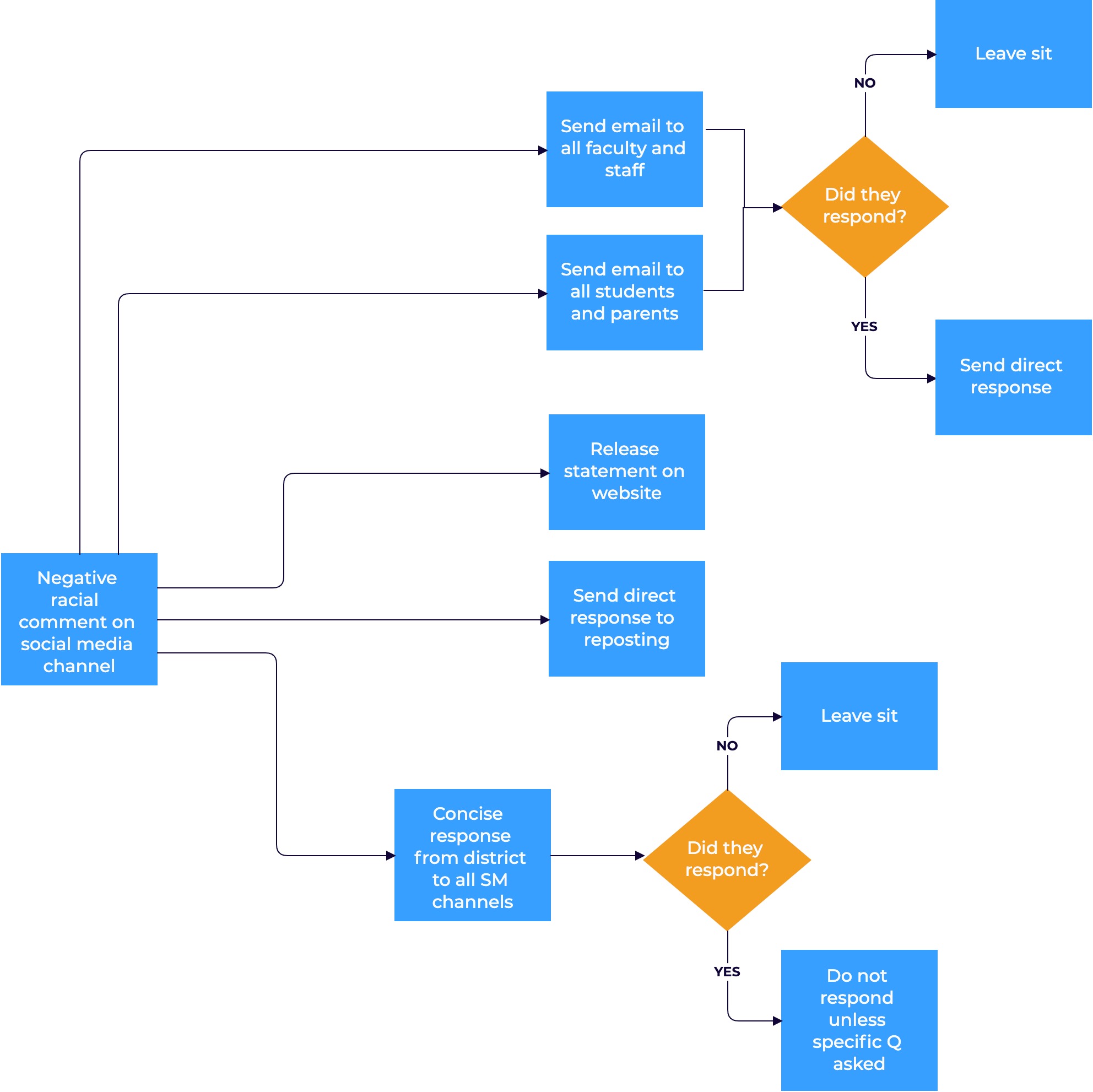Someone said it, “Better to remain silent and be thought a fool than to speak and to remove all doubt.” No truer words can be said when it comes to school officials – or any staffer, for that matter – taking to social media to comment on volatile topics such as racism.
Consider:
- A disgruntled student who had been expelled years earlier from high school trains his vengeful crosshairs on the school district and posts an outlandish racist message on the district’s Facebook page claiming the district unfairly targets African-Americans for disciplinary action.
- A Michigan superintendent was placed on administrative leave then terminated in swift fashion following remarks made on Facebook about the death of George Floyd at the hands of a cop gone rogue on the streets of Minneapolis.
- A player on the h.s. football team from a decade ago Tweeted that the new African-American head coach used the ‘N word’ routinely to motivate players when he was an assistant coach
- A Minnesota middle school teacher, an 18-year veteran, was fired for a pattern of racially insensitive comments on her social media accounts.
So how do you respond? When do you respond? Do you even need to respond?
Just who’s the good guy here anyway?
Some scenarios call for easier response plans than others. Clear violations of district ethics or standards or codes of conduct on the part of any staffer, for example, dictate certain responses, regardless of how it plays out in social media. Sure it’s still the school’s job to monitor and manage official social media engagement, but it’s hard if not impossible to harness pubic outrage on social media.
On the other hand, someone making accusations or commenting on an issue that you don’t know if it’s true or not – or know for a fact is false – that’s a tougher call. While you may be able to stall with responses like, “We’re investigating further, or we’re looking into it,” there may be limits on the viral spread of mis- or dis- or wrong information, if that’s what it turns out to be.
In either case, before any action at all is taken, it’s critical that your team do its due diligence to understand the scope of the issue. In some cases, it can be clear from an ethical, legal or pubic opinion standpoint. Other cases, not so.
When the social media dragon rears its ugly head, schools must be careful and take the necessary steps to handle it thoroughly, professionally and with empathy.
An emotionally charged social media ‘situation’ can take on a life of its own. So it’s important before any official response is made that you determine if it is founded in fact and truth. Sadly, even conjecture, speculation or someone or some group with an axe to grind can quickly escalate into a PR nightmare.
Negative social media response plan
Besides undoubtedly ruining careers, if not managed properly, such comments can take a huge toll on the reputation of the school district. When the social media dragon rears its ugly head, schools must be careful and take the necessary steps to handle it thoroughly, professionally and with empathy.
Remember, people are easy to attack on social media, institutions are even easier.
So what is your best course of action when your school or district is attached to insensitive, ill-advised remarks of your school super, principal, teacher, custodian or school bus driver?
Any of your school district’s leaders would do well to consult with your communication professionals when addressing sensitive topics through social media. Your school’s PR or public information lead should know best, and if they don’t, check with a PR consultant and have a crisis plan in place.
A negative post or comment can cost you dearly. Be prepared. Also, check out this very popular article on how schools should handle negative comments on school social media. Should a social media firestorm erupt, consider these steps to help quell the flames:
Form a coordinated team
If you don’t have a crisis communication team already assembled, get one fast. (Superintendent, communications lead, school board president, et al.)
Gain understanding
Misinformation notwithstanding, it’s important that school administration empathize with the comment and communicate that. Once comments are vetted and there's clear understanding, move forward with a messaging strategy.Nail your messaging
Craft your messaging to respond in a cohesive manner. It’s important that your messaging works across your key digital channels, so keep your message concise, on point and, above all, positive. In some isolated cases, you may not even need to publicly respond, but you should have your message ready in case you do.Post to your website and social media
Share your messaging initially via posts on your official school website(s), Facebook, Twitter, Instagram accounts. It’s important to reach these first, for it’s the medium in which the comment started and so dialogue there will be expectedBlast an email campaign
Simultaneous to (or very soon after) your website and social media postings, prepare and blast an email from Superintendent to all staff, students, and parents. Again, keep your messaging concise. Nobody reads long emails.
Click here to enlarged flowchart
In the Brainerd, Minnesota case, in which thousands of people signed an online petition calling for the termination of middle school teacher Kara Hall, district administration followed an effective course of action. Brainerd Public Schools Superintendent Laine Larson and her team reacted in a calculated and swift manner, responding in social media channels, website news feed, targeted emails, official press releases and a digitally published Letter of Commitment to Equity for All Students at Brainerd Public Schools - ISD 181.
Have a plan and stick to it
A couple of key takeaways: 1. You don't always need to respond publicly, for sometimes a public response can escalate the fray. 2. If you want to keep your job, think before you tweet.
People – most well-intended, some not – are scrutinizing personal and official social media accounts, trying to expose inappropriateness in the name of their cause.
With all due respect to the 'silence is violence' credo, sometimes it is best to keep quiet. Sometimes when we speak up we can expose ourselves – especially if not prepared. Worse yet, we expose our institutions. But with our social media accounts at our fingertips; our freedom of expression right there on our phone, easily within reach, it’s tempting to vent.
Celebrities and sports heroes, for example, are not only expected to comment on matters of such gravity, but often punished when not weighing in. Your school is no exception. Maybe that was that Michigan superintendent's excuse: he felt he had to respond quickly, and while in his rush to say what he thought was the right thing, it backfired loudly.
He should’ve had a plan and stuck to it. Better yet, stayed quiet. After all, racism is proving not only hard to abolish, but apparently hard for some to even talk about.
Topics: Communication Social media
About the author
Marketing director and content strategist for SchoolNow, Jay’s a former school public relations specialist who’s helped businesses, schools and colleges use the power of communications to improve their image, generate support, and optimize relationships. Reach him at jay@schoolnow.com.
.png?width=64&height=63&name=Group%20(4).png)
.png?width=66&height=64&name=Group%20(5).png)
.png?width=56&height=60&name=Group%20(6).png)
.png?width=66&height=52&name=Group%20(7).png)
.png?width=56&height=56&name=Group%20(9).png)
.png?width=59&height=52&name=Group%20(10).png)


